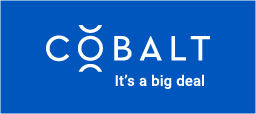It is not new that originator pharmaceutical companies try to block generic competitors from entering the market. Considering the recent developments in the Court of Justice of the European Union (CJEU), originators should tread carefully when defending their patents. Having a strong patent is crucial, and the consequences of failing to vet the strength of a patent could end up costly.
In this article, we explore the effect of the CJEU’s judgment in case C-473/22 on January 11, 2024 (Mylan), on Estonian disputes.
Resisting Interim Injunctions is Challenging
Originators are important to the pharmaceutical market, as are their generic competitors. Both play vital roles in pharmaceutical innovation and in ensuring the affordability of medicines. There is no lack of disputes between originators and generics in Estonia. It is not uncommon for originators to use offensive patent strategies and ask for an interim injunction to try to block a generic medicine from entering the Estonian market.
An injunction is quite easy to obtain when the originator company owns a registered patent. The plaintiff does not have to prove actual infringement of intellectual property rights with its application for interim measures. The court does not consider any evidence when first deciding the application and only relies on the plaintiff’s explanations while presuming that all the plaintiff’s statements are true. The court also does not have to hear the defendant before granting the injunction, further complicating the defendant’s position. To the additional advantage of the plaintiff, even in cases where the patent could be considered weak and there is good reason to believe it will be declared invalid, it is challenging to convince the court to dismiss the application for interim measures, especially once imposed. A patent is presumed valid, and the likelihood of the plaintiff’s claim succeeding is not a prerequisite.
For these reasons, it is an uphill battle to resist an interim injunction when measures are sought for the protection of a patent by an originator.
Uncertainty Pre-Mylan Regarding Generic Defendant’s Right to Appropriate Compensation
Compared to many European countries, Estonia’s legal system is relatively young. The law is still developing in more complex legal issues, one of which is the defendant’s right to appropriate compensation when unjustifiably blocked from entering the market. Under Estonian law, an applicant who has obtained an interim injunction in a dispute where the action is denied or dismissed must compensate the other party for any harm caused by such unjustified application of interim measures. This is known as no-fault or strict liability. While the provision itself is clear, European Union law must also be considered.
Directive 2004/48/EC of the European Parliament on the enforcement of intellectual property rights (Enforcement Directive) was interpreted by the CJEU in its judgment on September 12, 2019 (Bayer Pharma). The CJEU named several circumstances that should be considered when deciding the applicant’s liability for damages (abuse of interim measures, risk of irreparable harm, etc.). Shortly after, the first case by a generic competitor against an originator was brought before the Estonian Supreme Court. The generic claimed damages for being blocked from entering the market when the originator’s patent was later declared invalid. While the Supreme Court referenced the findings of the CJEU judgment, the impact of the judgment in Bayer Pharma caused confusion as its effect on the strict liability regime remained unclear and thus became the central point of contention.
The CJEU Allows Strict Liability
A Finnish court referred a case to the CJEU to determine whether strict liability is compatible with the Enforcement Directive. The resulting Mylan judgment aligns with the interpretation that Estonian law is proportional: the applicant need not prove infringement when obtaining the interim measure and the defendant need not demonstrate the applicant’s fault when claiming damages.
When an intellectual property right is declared invalid retroactively, it is deemed never to have existed. The Mylan judgment indicates that in such a situation, blocking a generic from the market to protect such rights hinders legitimate trade. Under Estonian law, this is relevant when determining compensation awarded to the defendant.
Summary
The Mylan ruling should make originator companies cautious when blocking generics from the market to protect their patents. Estonian courts have yet to interpret the Mylan judgment, but it is likely that they will confirm strict liability for appropriate compensation where interim measures were unjustified in intellectual property cases. Originators should ensure their patents are strong before seeking interim measures. Blocking a generic exposes the originator to the risk of strict liability for the generic competitor’s damages, and contesting such claims can be problematic.
By Kadri Michelson, Co-Head of Private Wealth Practice, and Anna-Riin Brett, Associate, Cobalt
This article was originally published in Issue 11.7 of the CEE Legal Matters Magazine. If you would like to receive a hard copy of the magazine, you can subscribe here.


